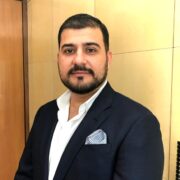
Meet our Team

Mr. Vivek Gupta
He is an entrepreneur, a mentor, career counselor, an author and so much more. Alumni of reputed institutes like IIM-Bangalore, Delhi Technical University and among the top 20 of his batch, Mr. Vivek Gupta has almost 20 years of experience.

Mr. Satyam Darmora
Satyam is an alumnus of IIM Bangalore ( 2005) and IIT Delhi 2003. He was first runner up at Lead India , an initiative by Times of India to find future impact leaders of India. After a 4 year stint with American Express, Satyam joined Michael and Susal Dell Foundation to take his passion to profession.

Ms. Sonali Garg
Having graduated from Kurukshetra University with a bachelor's degree, she is well-versed in digital marketing. Over the past two years, she has been actively handling and managing various academic responsibilities.

Mr. Sameer mahandru
Sameer Mahandru is an alumnus of IIM Bangalore (2004). He has worked with companies like Hindustan Lever, Asian Paints, SABMiller in the Sales & Marketing function for more than 6 years prior to starting operations at Indospirit. Currently he is MD and Chairman of Indospirit Distribution Limited.
Subscribe to our newsletter
Client Testimonial
Best thing about Vivek Gupta Sir is his selfless counselling. As I am already a BSC/ MSC, he suggested me to go to Philippines as I was able to get straight admission into MD and this finishes my entire course in 4 years flat. In any other country, it would have taken by 5.5-6 years. Ms Kanimojhi in Chennai office of GKWorks was equally supportive in coordination regarding documents, departure and all other formalities.
Damel Lakshmi Umapathy, Chennai TN Company Name: Studying MD at AMA School of Medicine- Philippines
We live 100 Km’s away from Varanasi. The internet connection in our town is very weak and my parents are not that educated. For us, understanding the word RTGS was also very difficult. Thanks to Amit Pandey Sir, who is Gkworks Varanasi incharge, he helped us to do all small things. Going with us to get forex to helping us doing RTGS for fee payment, he was always there with us. He only helped us to apply for passport online and went with us to passport office Varanasi. Such support at ground level was provided by GKworks team both in Varanasi and Delhi.
Shrishti Rai, Ghazipur UP Company Name : Students at Jalalabad State University – Kyrgyzstan
My parents were not very comfortable to send me abroad especially my mother as I am the only son of my parents. I really wanted to become a doctor and thus approached Hemant Mishra Sir, director of Bareilly branch of GKWorks. He went out of his way to convince my mother. He would have come 5 times to my home, invited us to his office and home 10 times before my mother was finally convinced. It is only due to Hemant Sir in Bareilly that I am pursuing my course today. I wish GKworks and especially Bareilly branch all the very best to help many more students for their life dreams.
Dheeraj Verma, Bareilly UP Company Name : Student at New Vision University-Tbilisi , Georgia
Recent Blogs
read all
How to Choose the Right Career Path for a Successful Future
April 19, 2025
Career & Personal Coaching: Unlocking Your True Potential
April 18, 2025
PR vs. Student Visa: Which One Should You Choose.
April 17, 2025
Top In-Demand Careers for International Students in 2025